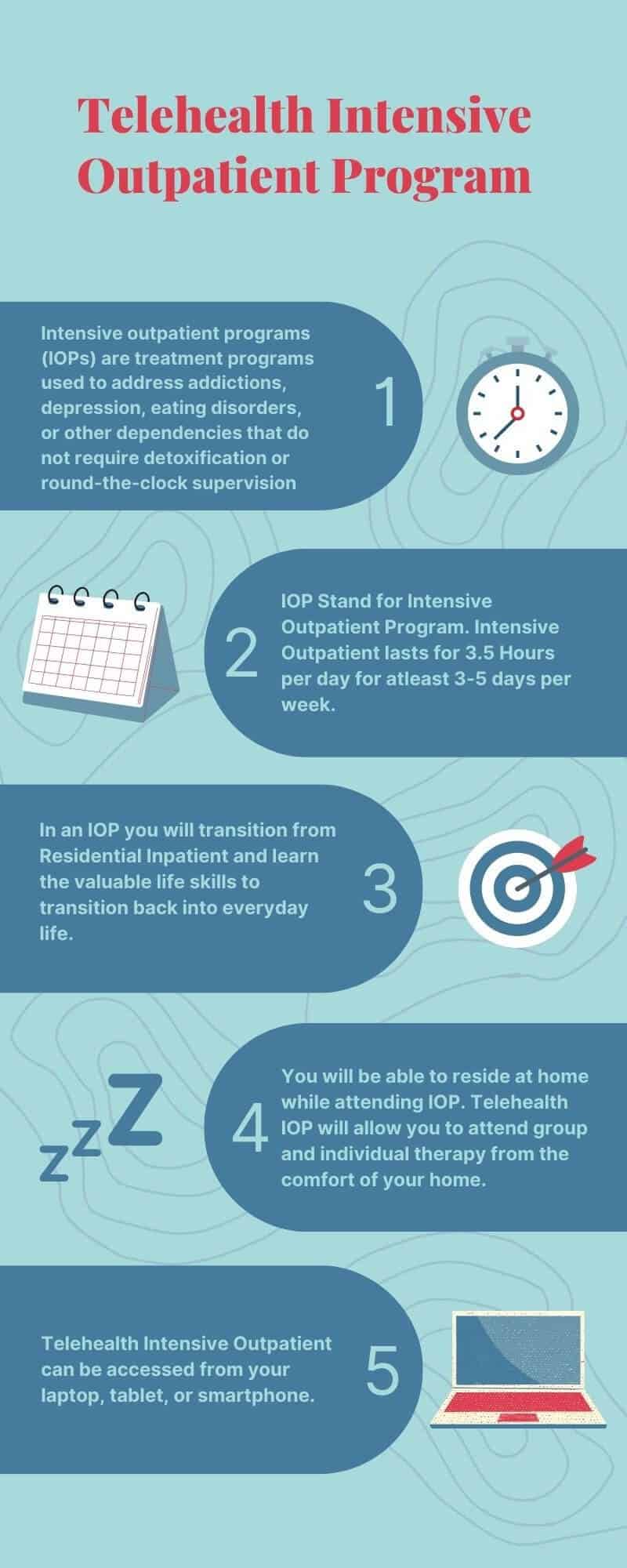Economical and Reliable Intensive Outpatient Program (IOP) Services Near You.
Economical and Reliable Intensive Outpatient Program (IOP) Services Near You.
Blog Article
Navigating the Complexities of Twin Medical Diagnosis Treatment Within an Extensive Outpatient Program Setting
In the realm of mental health and dependency treatment, the junction of double medical diagnosis provides a nuanced difficulty that requires a thorough and customized technique. By exploring the complexities of dual diagnosis therapy within this extensive outpatient context, a clearer path emerges in the direction of all natural and lasting recovery for those grappling with these linked challenges.
Double Diagnosis Summary

Recognizing dual medical diagnosis is crucial as it needs a comprehensive and incorporated strategy to treatment. By acknowledging the interplay in between material use and mental wellness, doctor can tailor interventions to fulfill the special needs of each individual. This all natural approach not just addresses signs and symptoms however likewise targets underlying aspects that contribute to the double diagnosis.
Moreover, untreated dual medical diagnosis can bring about a cycle of relapse and intensifying mental wellness signs and symptoms. By identifying the complexity of dual diagnosis and providing specialized treatment, medical care specialists can support people in achieving long-term recuperation and enhanced psychological wellness.
Tailored Treatment Strategies
Identifying the complex interaction between material usage conditions and psychological health conditions, the development of customized therapy strategies is extremely important in resolving the complexities of dual medical diagnosis in psychological health and wellness treatment. Customized therapy strategies are personalized strategies that think about the unique requirements, difficulties, and goals of people encountering dual medical diagnosis. These plans are made collaboratively by a multidisciplinary team of professionals, consisting of psychoanalysts, psycho therapists, social workers, and addiction specialists, to make sure detailed and integrated treatment.
Tailored therapy plans generally include a combination of treatments, drugs, and behavioral interventions that target both the substance use condition and the psychological health and wellness condition all at once. These strategies might consist of cognitive-behavioral treatment, dialectical actions therapy, medication-assisted therapy, specific therapy, group therapy, and family therapy, to name a few evidence-based interventions. By customizing therapy approaches to specific situations, tailored plans can address the origin of dual diagnosis, advertise lasting recuperation, and boost overall quality of life for people dealing with co-occurring problems.
Integrated Treatment Approach
An integrated treatment method in dual medical diagnosis treatment integrates clinical, psychological, and social treatments to deal with the intricate requirements of individuals with co-occurring compound use problems and psychological health problems. This technique acknowledges that treating one element of a dual diagnosis without addressing the other can result in inadequate results. By integrating medical treatments such as medicine administration for psychological health and wellness problems with emotional treatments like cognitive-behavioral treatment for material use disorders, people obtain detailed treatment that targets all aspects of their double diagnosis.
Furthermore, the social element of integrated care involves attending to ecological variables that may contribute to the development or perpetuation of substance use and psychological health and wellness concerns. This can include family members characteristics, housing instability, or go to these guys lack of social support. By including social treatments like family treatment, employment support, and community sources, the therapy comes to be extra alternative and tailored to the person's certain demands. In general, an incorporated care technique in twin diagnosis treatment within an extensive outpatient program setting aims to offer extensive, effective, and customized treatment to people dealing with co-occurring problems.
Challenges in IOP Establishing
In the context of double diagnosis therapy within an intensive outpatient program, browsing the complexities of co-occurring compound usage conditions and psychological health conditions offers significant challenges. One of the primary difficulties in the IOP setting is the sychronisation of care in between psychological health and wellness professionals and drug abuse professionals to make sure a detailed treatment technique. This needs reliable communication, collaboration, and a deep understanding of just how these problems engage and influence each various other.

Moreover, resolving stigma and resistance to treatment within the IOP setup can restrain development. Some individuals might be hesitant to disclose their double medical diagnosis or might really feel ashamed, hindering their involvement in the restorative process. Overcoming these barriers necessitates an encouraging and non-judgmental atmosphere that cultivates trust fund and openness.

Collaborative Professional Efforts
Efficient double diagnosis therapy in an extensive outpatient program requires smooth collaboration among mental health professionals and substance abuse professionals to make sure a thorough and integrated technique to care. By functioning together, these experts can produce individualized treatment strategies that cater to the one-of-a-kind requirements of each patient, thinking about both their psychological wellness and material abuse obstacles.
Joint efforts additionally prolong to routine interaction and details sharing among employee to guarantee a natural therapy strategy. This might involve case conferences, joint sessions with the person, or shared documents to track development and change therapy strategies as you can look here needed. Furthermore, partnership may include involving various other healthcare specialists such as health care physicians or family therapists to give holistic assistance to the individual. Eventually, a united front of professionals collaborating enhances the effectiveness of double diagnosis therapy within an intensive outpatient program.
Verdict
In verdict, effective dual diagnosis treatment within an extensive outpatient program setup additional resources requires tailored treatment plans and an integrated care strategy. Obstacles might emerge in this setting, but collective efforts among experts can assist browse these intricacies. By attending to the one-of-a-kind requirements of people with co-occurring psychological wellness and compound utilize problems, IOP programs can offer detailed and all natural like support healing and general wellness.
Report this page